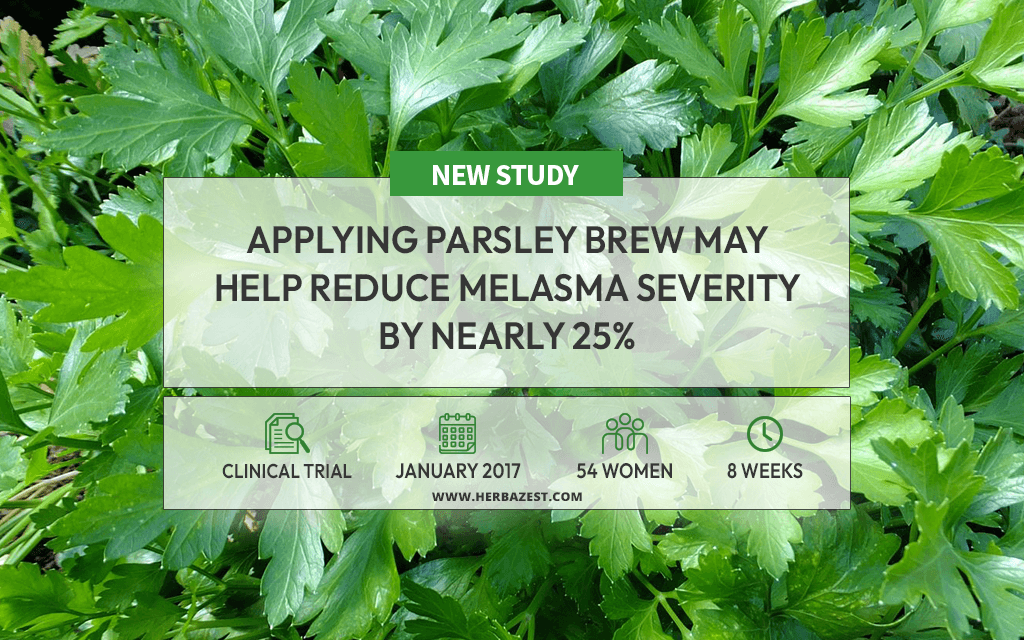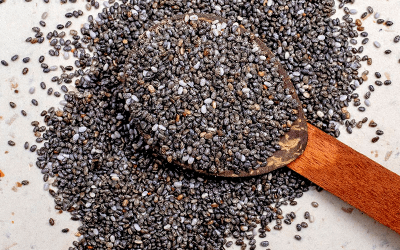Affecting more women than men, melasma is a pigmentation disorder, characterized by darker patches on the face.1 It is known to cause psychosocial stress in its sufferers. Melasma is conventionally treated with a variety of topical preparations, most commonly the hydroquinone cream.
Since prescription creams are not free of side effects, natural alternatives are highly sought after. Parsley could potentially be an effective remedy for melasma as it was traditionally used for skin pigmentation and facial spots. However, research is needed to further evaluate its potential applications.
As such, researchers conducted this trial to assess the effects of parsley brew on melasma in comparison to those of hydroquinone cream.
The Study
Using a double-blind, randomized, clinical trial design, Iranian researchers conducted this trial at the Gonabad University of Medical Sciences (Gonabad, Iran). They shared their findings in the Holistic Nursing Practice journal.
Researchers recruited 54 women with melasma, between the ages of 19 and 55. They were divided into two groups: the intervention and the control. For eight weeks, participants applied either a parsley brew (made by brewing powdered parsley in hot water) or a 4% hydroquinone cream on facial dark spots before bedtime.
Women's melasma type was determined with a wood's lamp, while its severity was assessed using the Melasma Area and Severity Index (MASI).
The Results
After eight weeks, the severity of melasma significantly decreased in both the control and parsley group by almost 25%.
Researchers also noted that treatment with hydroquinone cream was over 10 times more expensive than that with parsley.
Two women in both groups reported side effects, including redness and itching, with were more severe in the control group.
What Does this Mean?
The results of this clinical trial show that the effects of parsley on relieving melasma are as good as those of the standard treatment with hydroquinone. This means that the herb could potentially be used to relieve melasma symptoms without the side effects related to the standard treatment.
Additional studies are necessary to further assess parsley's medicinal applications for treating melasma and other skin disorders.
Other herbs that are beneficial for skin health include aloe vera, neem, marigold, turmeric, and green tea.
Sources
- Holistic Nursing Practice, The Effect of Topical Use of Petroselinum Crispum (Parsley) Versus That of Hydroquinone Cream on Reduction of Epidermal Melasma: A Randomized Clinical Trial, 2017
Footnotes:
- StatePearls. (2021). Melasma. Retrieved January 27, 2022, from https://www.ncbi.nlm.nih.gov/books/NBK459271/




